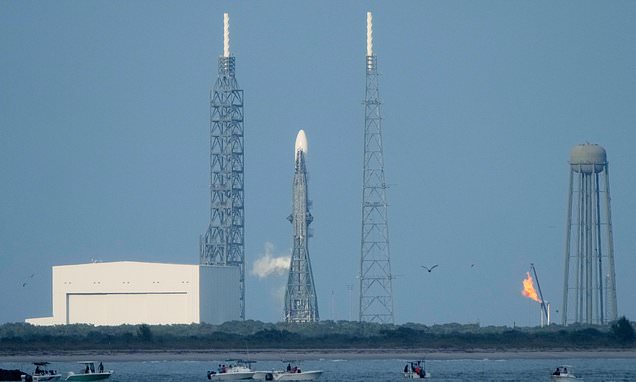Home / Science / Solar Storms Force Delay of Blue Origin's New Glenn Rocket Launch
Solar Storms Force Delay of Blue Origin's New Glenn Rocket Launch
12 Nov
Summary
- Intense solar storms responsible for stunning auroras across the U.S.
- Launch of Blue Origin's New Glenn rocket with NASA Mars orbiters postponed
- New Glenn rocket's second flight, larger and more powerful than New Shepard

On November 12, 2025, intense solar storms responsible for breathtaking auroras across the United States have led to the delay of Blue Origin's launch of its new, powerful New Glenn rocket. The rocket, which stands 321 feet (98 meters) tall, was poised to blast off from Cape Canaveral, Florida, on Wednesday afternoon, carrying two Mars orbiters for NASA.
However, five hours before the targeted liftoff, the launch was called off due to the heightened solar activity. Concerned about the potential impact of increased radiation on the Mars-bound spacecraft, NASA decided to postpone the launch until conditions improve. No new launch date has been set.
This would have been only the second flight of the New Glenn rocket, which made its debut in January 2025. The New Glenn is considerably larger and more powerful than the New Shepard rockets that Jeff Bezos' Blue Origin has been launching from Texas with passengers.




